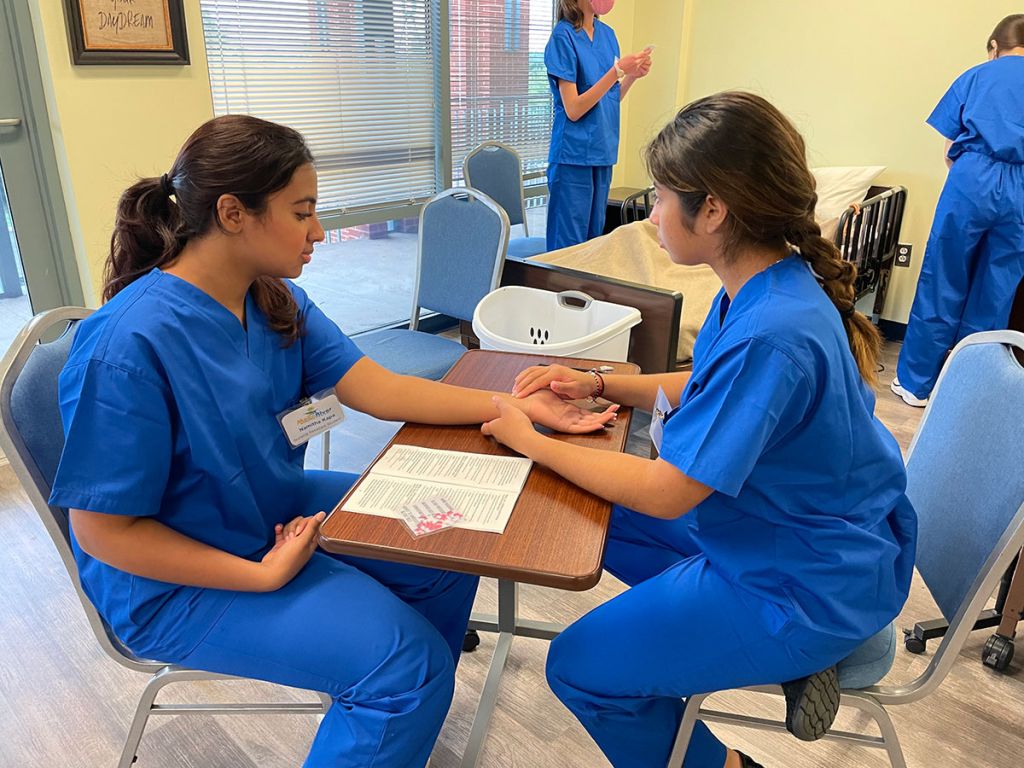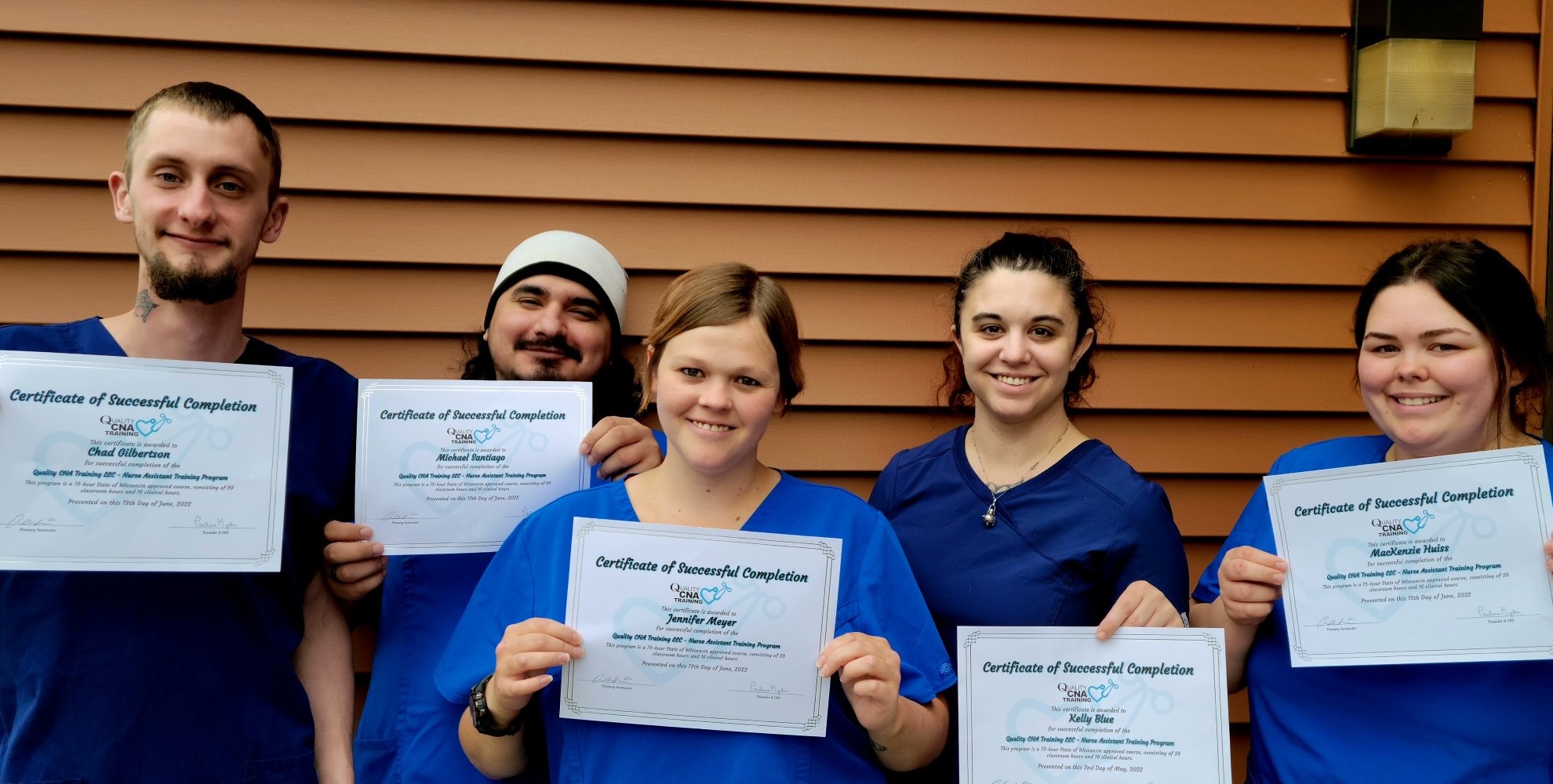CNA Classes: Myths Future Students Should Avoid
Just How CNA Classes Can Assist You Introduce an Effective Career in the Clinical Area
CNA classes act as a foundational stepping rock for individuals striving to enter the clinical area (CNA Classes). These programs impart important abilities, including effective communication and personal treatment strategies. Pupils take part in hands-on training, bridging theory with useful application. As the need for healthcare professionals expands, the duty of a Certified Nursing Assistant becomes progressively significant. This questions about the numerous occupation paths and innovation chances that exist ahead for those who finish their training
Recognizing the Function of a Certified Nursing Assistant
The function of a Certified Nursing Aide (CNA) is important to the healthcare system, working as an essential web link between patients and clinical personnel. CNAs mainly help patients with day-to-day tasks such as showering, clothing, and consuming, ensuring their comfort and self-respect. They are often the first point of call for clients, supplying indispensable emotional support and companionship. In addition to personal treatment, CNAs are in charge of checking people' crucial indicators, reporting modifications in problem to nursing team, and maintaining individual records. Their jobs include making sure sanitation in patient atmospheres and aiding with flexibility. This role needs a compassionate temperament, strong interaction abilities, and the capacity to function effectively under pressure. By facilitating a smooth workflow within medical care settings, CNAs play a considerable component in enhancing the general patient experience and sustaining the broader clinical team in providing top notch treatment.
Trick Abilities Obtained in CNA Courses

In addition, CNA programs stress individual care abilities, including help with day-to-day living tasks such as showering, clothing, and feeding. CNA Classes. Infection control techniques are one more critical component, making sure that students recognize just how to maintain a risk-free atmosphere for both individuals and themselves
Trainees gain understanding in standard medical terms, helping with far better understanding of medical care methods. Time monitoring skills are cultivated to help CNAs focus on jobs effectively. On the whole, these crucial skills form the structure for an effective occupation in the medical field, preparing students to meet the diverse demands of individuals.
The Benefits of Hands-On Training
Getting functional experience through hands-on training is crucial for aspiring CNAs, as it bridges the void in between theoretical knowledge and real-world application. This immersive learning strategy enables students to create essential abilities needed for patient treatment, such as efficient interaction, empathy, and technical capacities. Participating in real-life scenarios permits trainees to understand the characteristics of a medical care atmosphere, promoting self-confidence in their capacities.
Moreover, hands-on training aids trainees become acquainted with necessary devices and procedures, guaranteeing they are well-prepared for the obstacles of the work. It also provides opportunities to receive instant feedback from trainers, improving the learning experience. By functioning directly with individuals under guidance, aiming CNAs can refine their observational abilities and find out to respond to numerous circumstances properly. Ultimately, hands-on training equips these future health care experts with the capability and assurance needed to succeed in their functions.
Job Opportunities After Ending Up Being a CNA
Countless profession opportunities wait for individuals that complete their CNA training, opening doors to various functions in the medical care sector. Certified Nursing Assistants (CNAs) are necessary members of the health care team, offering direct individual treatment in settings such as health centers, nursing homes, and helped living facilities. Their duties can include aiding with daily living tasks, checking crucial indicators, and offering psychological other assistance to people.
Past traditional settings, CNAs may likewise discover chances in specialized areas, such as rehab centers or home healthcare. Furthermore, some might change right into duties in administrative support or client advocacy, leveraging their firsthand experience with patients. The need for CNAs remains to grow, driven by an aging populace and an increased concentrate on quality patient treatment. This high need assurances that people getting in the field have a range of alternatives to pursue, making it an attractive access factor right into a satisfying career in healthcare.
Paths for Development in the Medical Care Field
Advancement in the health care field supplies numerous paths for individuals looking for to improve their professions beyond the duty of a Qualified Nursing Aide (CNA Classes). After getting experience, lots of CNAs decide to seek more education and learning and qualifications, such as ending up being a Certified Nurse (LPN) or Registered Nurse (REGISTERED NURSE) This shift often entails enlisting in connecting programs that acknowledge their current skills

Continual expert development via workshops and seminars can maintain CNAs upgraded on industry criteria, making them more affordable candidates for innovation. The healthcare field gives various methods for growth, allowing CNAs to shape their occupation trajectories effectively.
Often Asked Questions
How Much Time Do CNA Courses Usually Require To Full?
CNA classes usually take in between 4 to twelve weeks to complete, depending on the program structure. Factors such as course strength, scheduling, and the establishment's educational program design can influence the go to these guys overall period of training.
What Is the Expense of CNA Training Programs?
The expense of CNA training programs differs commonly, generally varying from $300 to $2,000. Aspects affecting this expense consist of location, program size, and whether the training is offered with neighborhood universities or exclusive institutions.
Are Online CNA Courses Available?

What Is the Certification Examination Process Like?
The accreditation test process usually entails a written test examining knowledge and an abilities demo. Prospects need to pass both components to end up being certified, ensuring they fulfill the needed proficiencies required for nursing assistant functions.
Do I Required Prior Healthcare Experience to Enlist in CNA Courses?
Prior health care experience is not a requirement for enlisting in CNA courses. Individuals from different backgrounds can go into the program, as it is made to supply thorough training and expertise essential for effective accreditation and method.